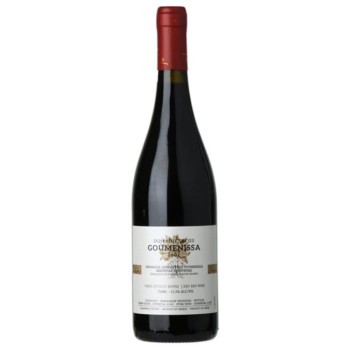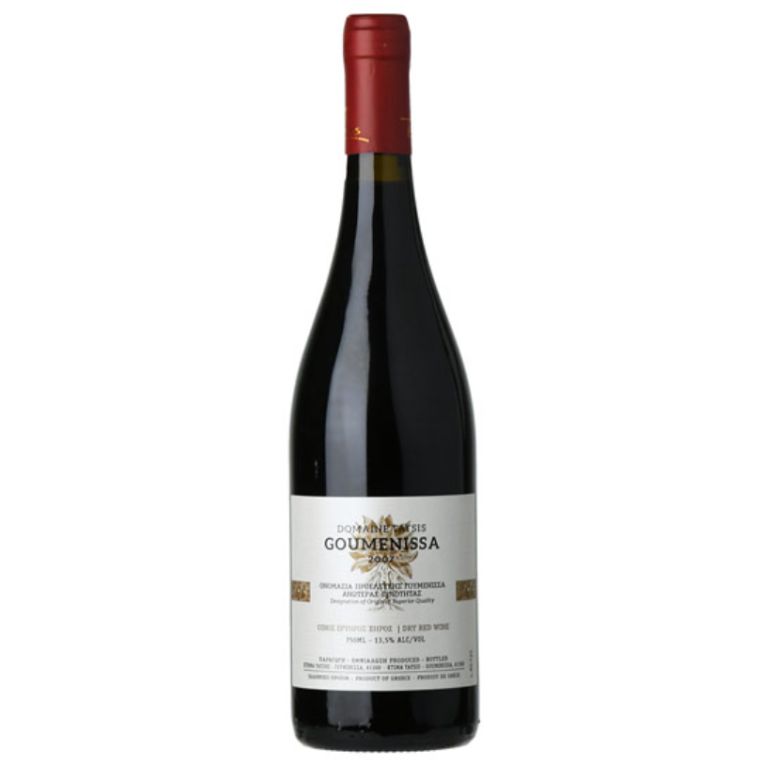

£27.50
per bottle (750 ml)
bottles
and above
£24.75
per bottle
Red Dry Wine Appellation of Origin made of Xinomavro and Negoska. Its colour is purple-red with crimson reflections one of the most typical expressions of Goumenissa. Its bouquet has the unique ability to conduct a harmonious combination of plums together with mature red fruits. The ageing in oak barrels comes to fill discreetly its fragrant palate. As regards its taste, Goumenissa impresses with its velvet character and its full construction. A wine capable of travelling you through the mysterious routes of the ultimate flavour.

Grape
Negoska
This rare Greek variety from the Northern part of the country produces rich, fruity and smooth red wines. Due to its low acidity and soft tannins, it also nicely complements bold and acidic Xinomavro grape.
Xinomavro
This is the shining star of the Greek vineyard! An intriguing grape, that needs good care when growing and though it might be susceptible to wet weather in the vineyard, when healthy, harvested appropriately and treated with focus in the winery hits admirable heights of body and complexity. Moreover, thanks also to its tight tannins and high acidity, it is suitable for long ageing. If you are a cellar fanatic, there is no better Greek grape to invest your patience on. It is obvious from Xinomavro wines of 30 or more years of age available today, that the potential of slow transformation of flavours, increasing complexity and better integration with time is huge.
Producer
Tatsis
Originally from Ano Vodeno of Eastern Romilia, an area steeped in viticulture, the refugee Tatsis grandfathers chose as their place of settlement during the population exchange of 1924 the small town of Goumenissa, an already developed viticultural centre that lies at the foot of Mountain Paiko, 65 km away from Thessaloniki. Since 1998 the vineyard is being cultivated and certified according to the regulations of organic farming and since 2002 follows the biodynamical principles. The vineyards are found on the hillock of Libaskerit and Gerakona, an ideal position for viticulture and the vines grow on calcareous, non-irrigated soil yielding a very modest production of about 3 to 7t/ha. All grapes come from the Estate, where also vinification and maturation take place.



